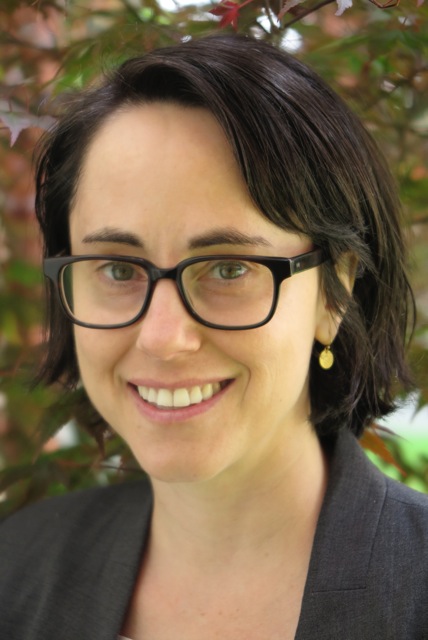Profiles in Community Engaged Learning- Nicola McClung
Nicola was asked, what inspires you to integrate service-learning or community-engaged pedagogies into your courses?

Nicola McClung
Assistant Professor, University of San Francisco- School of Education
Excerpt from the August 2016 Profiles in Community Engaged Learning. Professor McClung teaches Early Literacy.
I was first inspired to integrate community-engaged pedagogy into my course when looking for books for my daughter. She is a beginning reader, and I had difficulty finding books I wanted her to read.
Although multicultural children’s literature clearly makes an important contribution to the pursuit of equity and justice for all, it continues to be limited in several ways. Enter any classroom, home, or pediatrician’s office where an effort is being made to include diverse perspectives, and one will typically find books about able-bodied heteronormative white children living “normal” lives: a new puppy; bedtime; mom, dad, and baby; expressing emotions; going to school. In the same room, recent titles reflecting diversity might include: Heather has Two Mommies; Don’t Call Me Special; Black, White, Just Right; It’s Okay To Be Different; I Love My Hair; Day of the Dead, The Skin You Live In, Some Kids are Deaf, or Everybody Cooks Rice. That is, few books include characters that come from diverse backgrounds in which their social markers (e.g., the disability, being black, having gay parents) are not the focus of the book. Furthermore, when diversity is reflected, many authors fail to write in such a way that allows for independent reading and maximally supports children’s literacy skills. For example, although there are some picture books that contain anti-oppressive themes (e.g., African American History) they are almost always books that must be read aloud to children.
I also draw from my experiences as a teacher in San Francisco schools, including at Rosa Parks Elementary in the Western Addition. The project is based on the assumption that having access to texts that reflect diverse perspectives is motivating; in addition to high quality multicultural literature, we need books that contain universal themes depicting minority characters living everyday lives—e.g., a scientist who is a black female, a school principal who is multilingual, a soccer player with a disability, a mailperson who is trans, or kids simply having fun! These types of books are greatly needed for children from minority backgrounds to identify as readers and to see themselves as valued members of society. At the same time, such books allow students who identify with the dominant culture to come to see their minority counterparts as central to a well-functioning society (Dean-Meyers, 2014).
At the end of the summer, seeing the Prince Hall students excited about being authors, and seeing themselves in the books, inspires me to continue to the project and sustain the community partnership. Likewise, knowing that we are in some small way closing the cultural/linguistic distance between teachers in training and students in urban schools provides a purpose to the work that is important to sustain.





